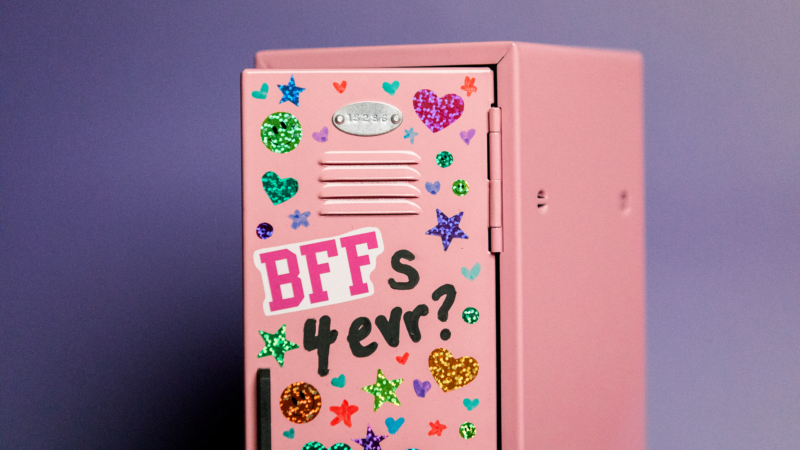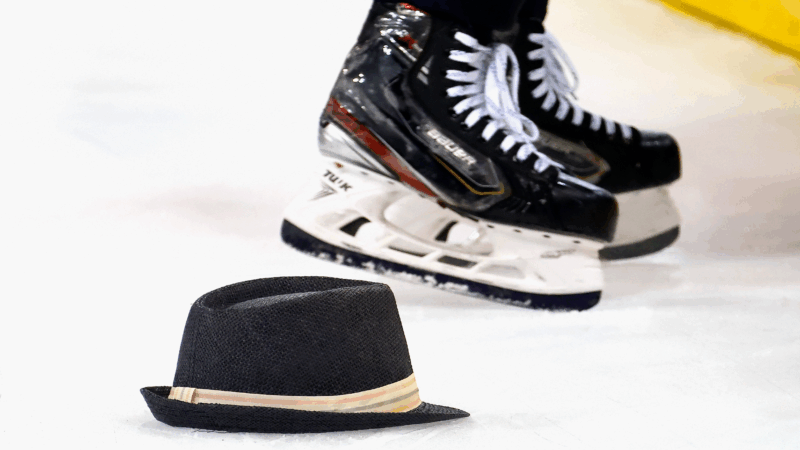Why you should fight to keep old friends
It can be tough to maintain our relationships with old friends.
We move cross-country. We have kids. Or maybe one person is better at staying in touch than the other.
Despite the challenges, Nina Badzin, host of the podcast Dear Nina: Conversations About Friendship, argues we should fight to keep old friends.
“It’s important to have friends who have known you through different stages. It’s a good life skill for happiness,” says Badzin, who has hosted nearly 150 episodes on adult friendships, on topics ranging from defining close friends to dealing with rejection.
The key is to focus less on them and more on you. “Don’t keep score,” she says. “And learn to develop a benefit of the doubt. Assume the best of your friends.”
Badzin talked to Life Kit about how to cultivate a mindset that can help you nurture old friendships — and the art of staying in touch.
How would you define an old friend?
I think a lot of us [define old friends as the ones we made in] childhood, or somebody we were friends with in college who we’re still friends with now.
Having been in the trenches together also makes us feel like old friends. It could be a job where you together had a difficult boss, and you’re still friends 10 years later.

Why do some friendships survive for decades and others fade away?
The thing that gets in the way of old friendships is a perceived lack of equality and effort. It’s hard not to expect other people to do friendship exactly the way we do or the way it was always done.
Is there value in telling a friend, “I would really like to be loved or cared for this way.”
Yes, absolutely. For example, you could say, “I love the time we spend together and I don’t mind that I make a lot of the plans, because it’s important to me to see my friends. But I would like to know if you really want these invitations.”
That said, I don’t think you should bring up every friend’s aggravation. It goes back to assuming the best and knowing that people do friendship differently.
Let’s talk more about assuming the best intentions.
There is a quote I love by a former guest of mine, Ruchi Koval, a relationship coach. She said there are people who never disappoint us, and those people are called acquaintances.
An old friend especially is going to have disappointed us at some time, and we will have disappointed that person. So any long-standing friendship needs to have forgiveness in it. And forgiveness requires humility to assume the best.
What does it mean if someone doesn’t have any old friends?
If you haven’t been able to maintain friendships, it’s probably a sign that something is off in your mindset about friendships. Maybe you have unreasonable expectations.
I don’t say this to make people feel terrible. I say it with optimism. This is something you can change. You can have friends in your life now who you make an effort with so that 10 years from now you can consider that person an old friend.
If you only see or talk to an old, out-of-town friend once a year or once every five years, are you still friends?
Yes, but I would not let five or 10 years go by [without talking to them] if you can help it.
Being an adult means making time for your friends because it is important. If all you can manage right now is a FaceTime with your long-distance friends, I would do that.
Sometimes those can feel like work.
It is a lot like exercise. Very few people regret having gone on a walk. Yes, we would love to just sit and watch TV, but once you’ve gone on that walk, most people come back and they’re like, “OK, I’m glad I did that.” A phone call with a friend is a lot like that.

How important is in-person connection to old friendships?
If you’ve been talking on the phone and texting with an old long-distance friend for a decade, you would want to get on a plane at some point and see that person.
If we’re talking about in-town friends, it’s important to get together in person. I love getting together with people in someone’s house much more than a restaurant. It’s so loud. You can only talk to the person right next to you. And after 20 or 30 minutes, you’re caught up and you kind of see your friend on the other side of the table and wonder what she’s up to.
If you’re at someone’s house, you can move around. It’s more natural to talk to one person — then after a little bit, talk to another person. People love being invited over.
How can we give our friends the grace and the space to change?
Most of us want to be able to develop and change our mind about things. There’s not a lot of hope in the world if we have to keep the same opinions and interests we had from the time when we were in our 20s or 30s.
Give your friends space to try different ways of living. Nobody likes to [be around] someone who says, for example, “I thought you said you would never be one of those people who does CrossFit.”
It is one of the biggest gifts you can give to a friend. If we could give others as much space as we give ourselves, it would go a long way.
It sounds like it’s important to fight for your friendships.
All you can do is control how much effort you put in and then assume the best of the people who are important to you.
The digital story was edited by Meghan Keane. The visual editor is Beck Harlan. We’d love to hear from you. Leave us a voicemail at 202-216-9823, or email us at [email protected].
Listen to Life Kit on Apple Podcasts and Spotify, and sign up for our newsletter. Follow us on Instagram: @nprlifekit.
Shootings at school and home in British Columbia, Canada, leave 10 dead
A shooting at a school in British Columbia left seven people dead, while two more were found dead at a nearby home, authorities said. A woman who police believe to be the shooter also was killed.
Trump’s EPA plans to end a key climate pollution regulation
The Environmental Protection Agency is eliminating a Clean Air Act finding from 2009 that is the basis for much of the federal government's actions to rein in climate change.
The U.S. claims China is conducting secret nuclear tests. Here’s what that means
The allegations were leveled by U.S. officials late last week. Arms control experts worry that norms against nuclear testing are unraveling.
Pam Bondi to face questions from House lawmakers about her helm of the DOJ
The attorney general's appearance before the House Judiciary Committee comes one year into her tenure, a period marked by a striking departure from traditions and norms at the Justice Department.
From gifting a hat to tossing them onto the rink, a history of hat tricks in sports
Hat tricks have a rich history in hockey, but it didn't start there. For NPR's Word of the Week, we trace the term's some 150-year-history and why it's particularly special on the hockey rink.
Ukrainian sled racer says he will wear helmet honoring slain soldiers despite Olympic ban
Vladyslav Heraskevych, a skeleton sled racer, says he will wear a helmet showing images of Ukrainian athletes killed defending his country against Russia's full-scale invasion. International Olympic Committee officials say the move would violate rules designed to keep politics out of the Olympics.








